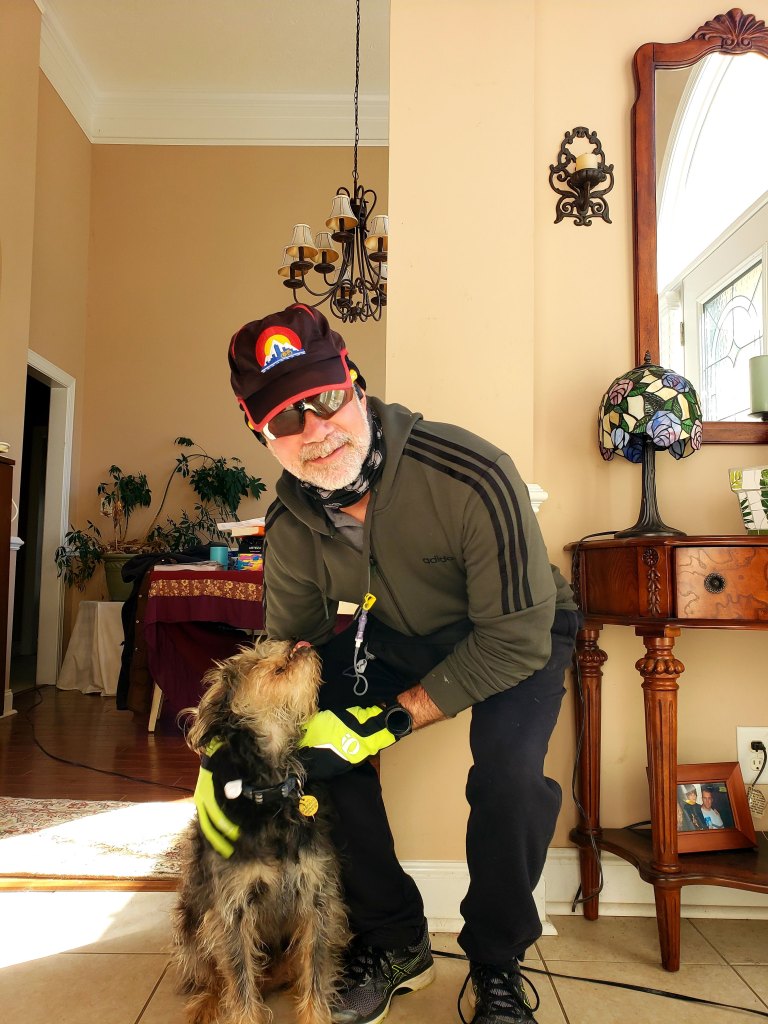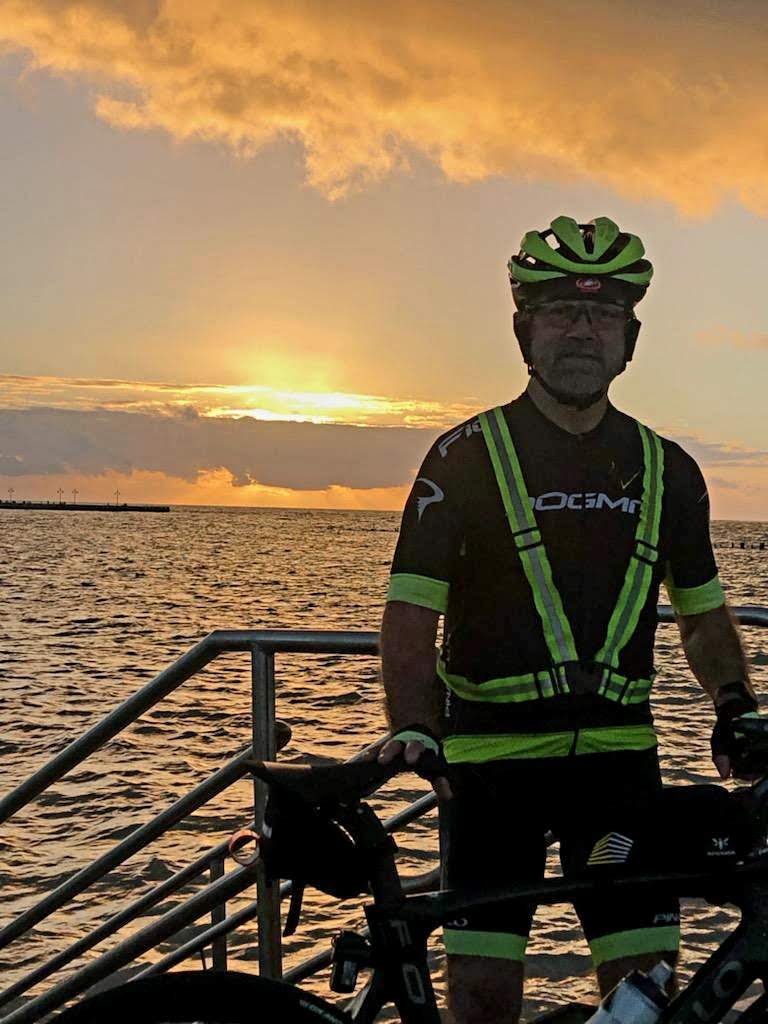UAB Patient Beats Stage 4 Colorectal Cancer Without Surgery

In November 2020, retired Chief Master Sergeant Patrick McCrocklin visited the medical center at Maxwell Air Force Base in Montgomery, Ala., where he assumed he would be treated for a hernia. He actually had two hernias, but doctors also found two mysterious spots on his liver. MRI and PET scans revealed stage 4 colorectal cancer that had spread to his liver, and he was given just six months to live.
Over two years later, McCrocklin, 62, is grateful to be alive and unconcerned about the two unrepaired hernias. “It’s like painting a car – if the engine doesn’t work, I don’t care what the paint looks like,” he says.
His journey has been difficult, but his commitment to fighting for his life remains strong. After being diagnosed, McCrocklin researched colorectal cancer care online, and he decided that UAB Medicine was the place to turn. “With stage 4 cancer, the line is usually that there’s not a lot we can do, so we’ll make you comfortable,” he says. “I didn’t get that from my UAB team – they were willing to think outside the box.”
Treatment Journey
For McCrocklin, thinking outside the box meant avoiding surgery. It also meant undergoing 14 chemotherapy treatments between February and September 2021. “The UAB nurse who took care of me during chemo said she’d only known two patients who were able to complete treatment,” he says. “Most people can’t tolerate this regimen.”

McCrocklin’s excellent response to chemotherapy led him to the next leg of his journey, which was working with UAB Medicine radiation oncologist Michael Soike, MD. “When he was first diagnosed, Patrick had at least 20 liver metastases, which is a large burden of disease,” Dr. Soike says, referring to the 20-plus spots where the cancer had spread to his liver. “By the time I met him, he’d had a terrific response to chemotherapy, so we decided to treat the smaller spots on his liver that were still present.”
Under Dr. Soike’s care, McCrocklin underwent a procedure on his liver called focused stereotactic radiosurgery, in which radiation is used to treat cancerous tumors. “He tolerated this well, and it was effective in eliminating the spots that were still present in his liver,” Dr. Soike says. “Our team then had to decide how to approach the cancer that started in his rectum.”
McCrocklin wanted to avoid surgery at all costs. His doctors listened, and instead of surgery, he received radiation therapy near his home in Millbrook, Ala. Meanwhile, he worked on strength training and switched to a plant-based, whole-food diet. “I did 30 treatments, and the pain after each treatment was tough to go through,” McCrocklin recalls. “Still, every day I could, I walked between 2 and 3 miles and rode 20 to 30 miles on my training bike or on the open road.”
Specialized Cancer Clinic
McCrocklin praises the UAB Multidisciplinary Colorectal Clinic and its patient-centered approach. “I wanted to be aggressive but not reckless, and they balanced my wish to avoid surgery and maintain my quality of life with an understanding of what’s medically possible,” he says. “They’re truly blazing new pathways for treating colorectal cancer.”
Because UAB Medicine is designated as a Comprehensive Cancer Center by the National Cancer Institute (NCI), it has several clinics dedicated to treating specific types of cancer. This offers a number of benefits, including being able to see a surgeon, a radiation oncologist, and a medical oncologist in a single visit. All members of the care team are brought together to discuss the case in real time and consider the patient’s needs and preferences.
“We listened to Patrick’s goals and explained the risks of his approach,” Dr. Soike says. “He understood those risks and wanted us to explore treatments we might not have otherwise considered. By getting to know Patrick as a patient, we decided to treat his disease aggressively, yet were able to avoid an invasive surgery.”
Medical Monitoring
McCrocklin completed radiation therapy in January 2022, and by April, there was no evidence of the cancer. He’s monitored regularly with scans and bloodwork, along with a method called circulating tumor DNA (ctDNA) testing. In the past, ctDNA testing was only used to detect blood cancer, but today it’s also being used to look for solid tumor DNA floating in the bloodstream. “ctDNA testing is another piece of evidence we’re willing to use at UAB that’s reassuring to Patrick,” Dr. Soike says.
When McCrocklin was first diagnosed, the Florida native had been planning to travel to Key West with his family to celebrate his 60th birthday. Those plans had to be canceled, but McCrocklin and his family finally made the trip in January 2023 to celebrate him turning 62. “At the beginning, I wasn’t sure how long I’d be around to see my kids,” he says. “I’m very thankful to my doctors and all the people at UAB who helped make my survival possible.”
March is Colorectal Cancer Awareness Month. Click here to learn more about colorectal cancer care at UAB Medicine, which is home to Alabama’s only NCI-designated Comprehensive Cancer Center.




